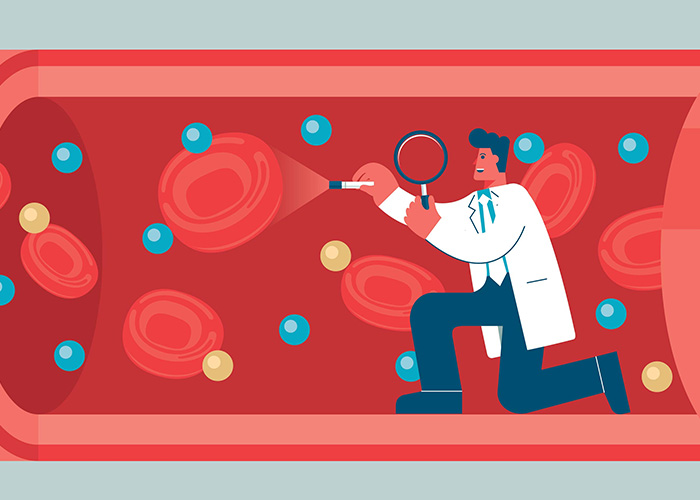Questions About Poor Circulation?

Here Are Some Answers From the Experts
Why Is Good Circulation So Important for Our Health, and What Are Things That Can Disrupt the Quality of Our Own?
The circulatory system of our body delivers vital oxygen and nutrients to all of our muscles and organs. When plaque or arterial blockages develop, this normal blood flow is hindered and can lead to devastating effects such as heart attack, stroke, or leg amputation. The process of plaque build-up is a slow one and usually takes decades; yet studies have shown the precursors of plaque developing as early as in our twenties.
The risk factors associated with arterial blockage are diabetes, high blood pressure, elevated cholesterol, smoking, and a family history of early heart/vascular disease.
What Are Signs That Your Circulation Needs Work, and How Do You Know When It’s Time to Check in With Your Doctor About Your Symptoms?
The symptoms from an artery blockage depend on which artery is involved; however, one of the most common areas of circulation affected involves the legs. When a person develops leg artery blockage, common symptoms can include leg pain while walking, cold extremities, slow healing foot wounds, or even gangrene of the toes. If you experience any of those symptoms, especially with risk factors, you should be evaluated by a vascular specialist.
What Are the Best Ways to Improve Your Circulation, and What’s the Best Way to Execute Each Method for Maximum Efficacy?
A Heart Healthy Diet
A modified Mediterranean diet is a good model to follow to promote healthy eating. Focus more on fruits, vegetables, brown rice, sweet potatoes, and fish. Try to limit red meat intake to once or twice a week. Cholesterol blood work should be checked at least once a year and followed by your physician for diet and medication recommendations.
Daily Exercise
Exercise keeps your heart healthy and strong. Try to aim for 20 minutes of good heart pumping exercise (jogging, cycling, elliptical, swimming) 4-5 times per week. If you haven’t exercised in years, you may want to consult a physician before starting a new routine. Walking can help recruit more blood vessels to your leg muscles and can alleviate leg pain caused by arterial plaque.
Controlling Blood Pressure and Diabetes
Elevated blood pressure and glucose levels promote the formation of plaque in the body and are readily modifiable risk factors with the help of your physician. Aim for a blood pressure less than 120/80mmHg and a hemoglobin A1C less than 6.5% if you have diabetes.
Quit Smoking
Smoking increases the chance of developing arterial blockage by several fold and quitting today can lower your risk of heart attack, stroke, and limb amputation. Ask your doctor for medication options to help kick the habit.
Talk to Your Relatives
If there is a family history of early heart or vascular disease, before age of 55 in a male and 65 in a female, you should see specialist at least 10 years before you reach that age. Even without classic risk factors, your genetics and family history play a key role in plaque development.
Wear Compression Socks
Venous insufficiency is a condition that causes varicose veins and leg swelling. Compression socks may help alleviate symptoms. You can purchase compression stockings at 15-20mmHg strength without a prescription. Wear the stockings from morning to evening and follow up with a vascular specialist who may be able to offer minimally invasive procedures to definitively treat the problem.
Take a Break
As the weather gets milder in spring/summer, take time in your day to go outside and walk. Any added activity to your daily routine will benefit your longevity. If you have a desk job, try to take a short break from sitting every hour.
Using these helpful tips and consulting with your vascular specialist will ensure a healthy circulatory system to enjoy life to the fullest.


